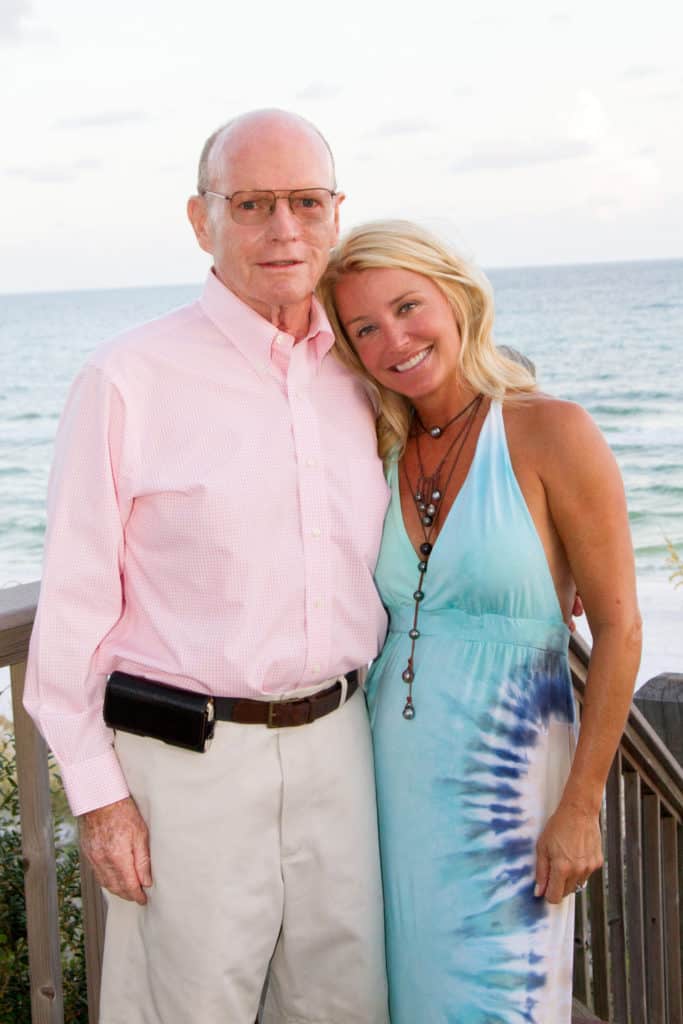


November is National Alzheimer’s Disease Awareness Month. When it was designated back in 1983, there were fewer than 2 million American’s with this disease, now there are more than 5.4 million. I am not sure why it was called Alzheimer’s Disease Awareness instead of Dementia Disease Awareness. Most people don’t realize, but Dementia is the big umbrella with Alzheimer’s falling under the it with several other types of Dementia. My step-father has Lewy Body Dementia which is one of the most aggressive types of Dementia.
Have you ever had to care for someone sick? I’m sure you have. When someone is sick with the flu, a bad cold, or something short lasting, we can suck it up and take care of him or her even if they aren’t an easy person.
However, imagine being a long-term caregiver. Over a year ago, my stepfather was diagnosed with Lewy Body Dementia. At the time, I had no idea what that meant. After researching, I felt like I had a good handle on it, but boy was I wrong. I moved him to a retirement community in Birmingham last year, thinking he could live out the rest of his life there because they had different levels of care. However, I learned after a couple of months that was not going to be the case.
For several months, I felt so alone and I didn’t know which way to turn. I wanted to help him and make sure he had the best life he could with this disease and be safe at the same time. Every day was a new day and I felt like I was swimming in the ocean by myself barely able to keep my head above water.
I finally got in a dementia support group and that has changed everything for me and my step-dad. It was nice talking to people who were going through similar things. Dementia changes day to day and is different for everyone. There doesn’t seem to be two cases that are alike. One of the best things I learned from my support group were different people who could help me make the best decisions. I learned about a Geriatric Care Manager, LifeCare for Seniors. Now, I have a team of people who can help me make informed decisions.
Everyone’s situation is different, but I have to say mine is better than most. I have my stepfather in a memory care unit with loving caregivers and I can go see him as much as I want. I can even take him out for field trips. Also, being the stepdaughter (he didn’t come into my life until I was 29) allows us not to have the typical parent/child relationship with baggage attached.
My stepfather is very grateful for me and tells me all of the time how much he appreciates me. This is not the case for most long-term caregivers. It can be a very lonely place. I think, especially for spouses and for partners. They try to keep them at home as long as possible and try to do everything themselves. Their friends seem to go away because they don’t know what to do or say. There can be a lot of guilt and depression. Money can be a huge problem because it costs a lot of money to care for someone with dementia and you never know how long it is going to last. All of the things are big stressors, which can lead to health problems for the caregiver. Check out my blog post on self-care and how important it is to your health.
I am not expert on this (although, I am getting there), but the things I would recommend:
- Find a support group
- Ask for help from your friends and family
- Find a Respite program
- Take care of yourself – this could be just taking 15 minutes alone each day. Hopefully more, this is just a minimum. If you don’t take care of yourself, you will not be able to take care of your loved one.
There are a lot of resources out there to help:
- Teepa Snow
- Alzheimer’s Disease & Dementia Basics
- Confidence to Care: A resource for Alzheimer’s and dementia caregivers
- Things to remember if you love someone with dementia
- The Stresses of Caregiving
- A Video on What is Dementia?
If you are a caregiver what is one thing you would want people to know?







